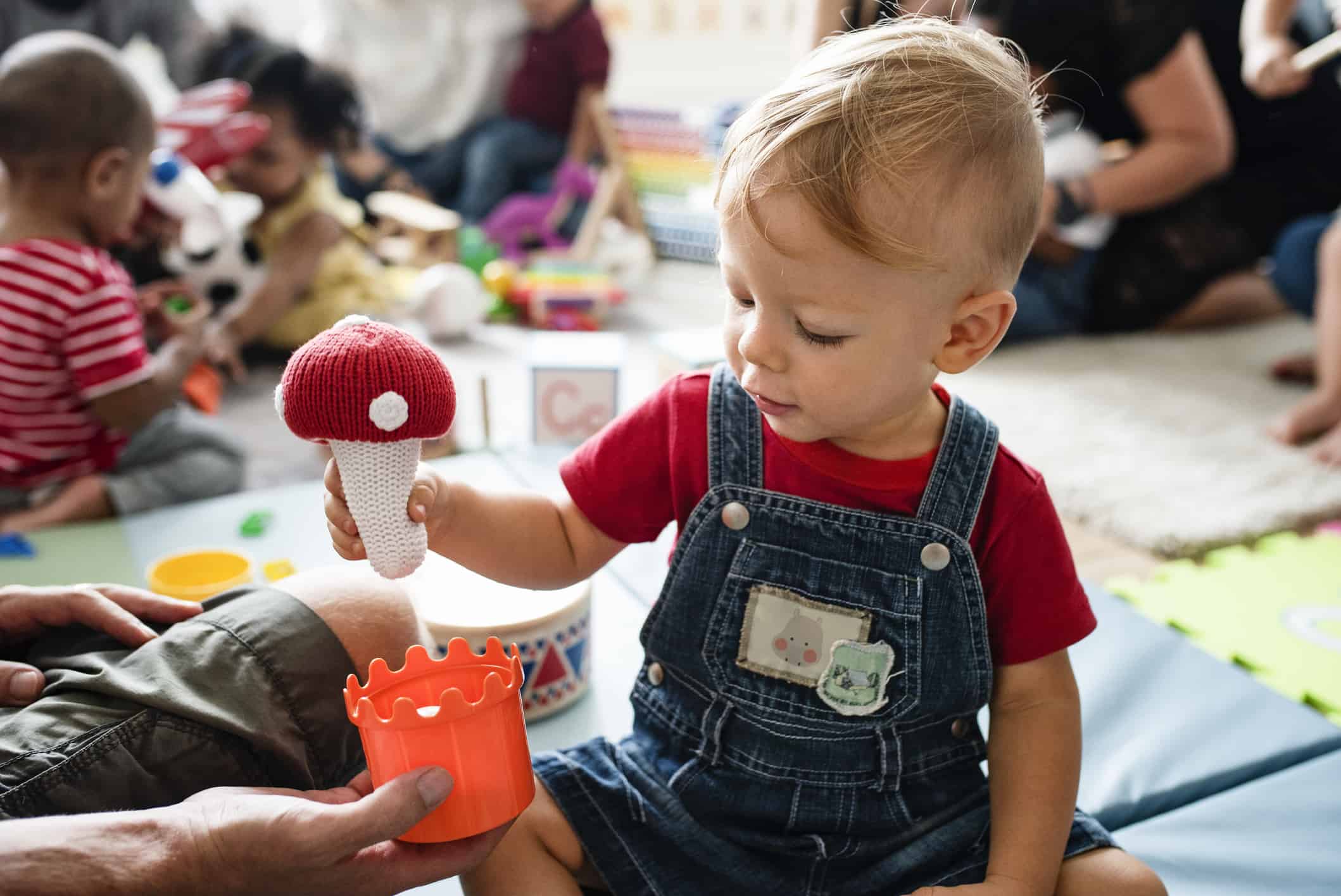

The 3 Most Important Childcare Questions, Answered
After their new baby arrives, many parents utilize childcare — both inside and outside the home — so they can continue to work — or so they can simply have a little "me time" a day or two a week. If you anticipate you'll want or need childcare after your baby arrives, the time to start looking is NOW! Before you start the search, here's what you need to know.
How Do I Find Childcare?
The best place to find childcare — or at least start the search — is to ask your trusted circle of friends and family for their recommendations — as well as their suggestions for places to avoid. And find out why they like the people and places they recommend. When you have a decent list of recommendations, it's time to do your own research. Get online and explore more about your options, read reviews, find out about your state's childcare rating system, and learn what each of the places you're interested in offers — start/end times, facilities, teacher ratio, etc. Narrow down your final list to 3-5 places, and line up tours for each. When you find the places you'd be happy with, get on their waiting list. It stands to reason that the most coveted places have a bit of a list, which is why you should start your search early.
What Types of Childcare are Available?
When it comes to types of childcare, you have several options. These include:
Daycare — Daycare is a popular option for people who work full-time and need reliable care for their children for more extended hours. Daycare hours typically include before care and aftercare and can span from 7 a.m. to 6 p.m. Daycare centers tend to stay open year-round only closing during holidays and when bad weather requires it.
Mother's Day Out — Mother's Day Out programs are designed more for exactly what they're called — giving Mom (or Dad) a little time to do things without baby in tow. Hours tend to be shorter at Mother's Day — 9 a.m. to noon or perhaps a little later — and often they'll close during summer months or for extended holiday breaks.
Nanny/In-Home Care — In-home care is a popular option for parents who prefer to keep their little one at home versus having to pack them up and shuttle them to and from childcare centers. As with most things in life, in-home care has its pros and cons. A pro, for example, is that if your little one is still asleep when it's time to go to work, you don't have to wake them — the childcare provider can take over once you leave so your child is undisturbed. A con? If your childcare provider is sick or their car breaks down, they may have to cancel last-minute, leaving you in a bind.

©iStock.com/Ridofranz
There are more options — such as preschool programs and childcare co-op programs, which can help keep costs down. Find out more about your options at childcare.gov.
How Much Does Daycare Cost?
The cost of childcare is dependent upon several factors, such as what type of program you''re utilizing. For example, traditional daycare, which have longer hours and are open year-round may have higher tuition costs. Mother's Day Out programs, which are typically open for fewer hours per day, are significantly less. In-home care can be incredibly cost-exorbitant due to the customize nature of the care.
According to Care.com, "Overall, the average child care cost for one child in 2020 was $612/week for a nanny (up from $565/week in 2019), $340/week for a child care or day care center (up from $182/week) and $300/week for a family care center (up from $177/week)."
In addition to starting your childcare search early, you may also want to start saving now for this costly expense.
The bottom line? Your baby is the most important person in this scenario, so finding the perfect fit for them and your family is a crucial decision. Take your time, explore all your options and be sure you've found the ideal solution!